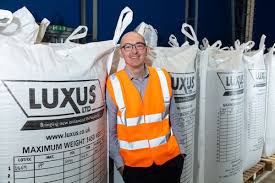
The aim of this new 30 month research and development project known as Odour Control, is to employ unique process technologies to deliver high value ‘second life’ applications for odour contaminated plastics, that would otherwise only be adopted for limited low value markets.
Luxus will lead the project in collaboration with its partners the University of Lincoln to provide a ‘test house’ to identify and quantify odour species, Matrix Moulding Systems will help develop the processing system design and injection moulding company, One 51 will produce the finished parts.
Recycled plastics have a ‘scent memory’ from contact with heavily perfumed detergents or food that creates quality issues inhibiting further use. Although some progress has been made to recycle easier post-production waste streams, the recycling of post-consumer polypropylene (PP) and polyethylene (PE) still presents a major challenge.
Currently, under 1% of the UK’s 260,000 tonnes of post-consumer polypropylene waste is effectively recycled into high quality products, the rest is used in lower value applications or worse still, left for landfill.
Luxus project manager, Chris Kerridge, comments: “We are pleased that Innovate UK has recognised the importance of developing a process that will allow for the cost efficient reprocessing of polymer that was previously uneconomic to recover due to retained odour.
“We aim to address this challenge by removing retained odour so the waste polymer can be reprocessed for use in high value products in the civil engineering, automotive, horticulture and detergent packaging industries, enabling manufacturers to satisfy sustainability goals.”
This project aims to create a prototype of the process, so Luxus technicians can gain an improved understanding of its ability to cope with the variability in the type and levels of odour compounds that occur in post-consumer polymer, to help underpin its future full scale commercial application.




